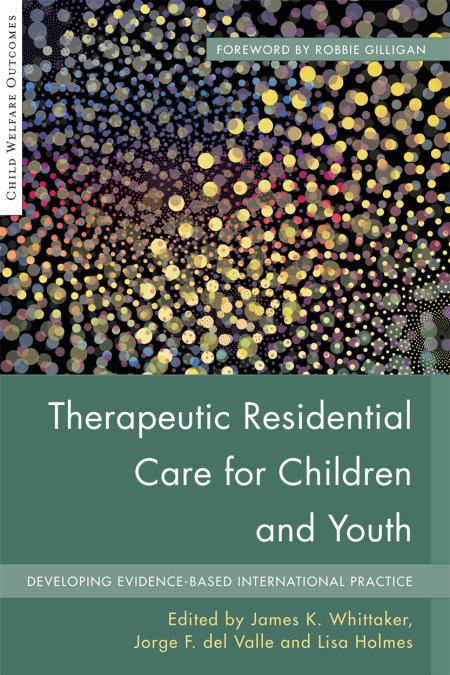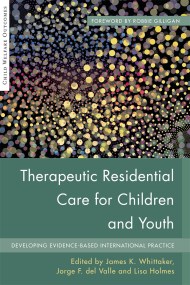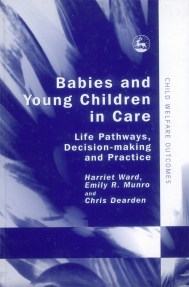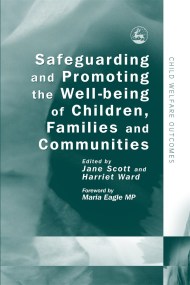Therapeutic Residential Care For Children and Youth takes a fresh look at therapeutic residential care as a powerful intervention in working with the most troubled children who need intensive support.
Featuring contributions from distinguished international contributors, it critically examines current research and innovative practice and addresses the key questions: how does it work, what are its critical “active ingredients” and does it represent value for money? The book covers a broad spectrum of established and emerging approaches pioneered around with world, with contributors from the USA, Canada, Scandinavia, Spain, Australia, Israel and the UK offering a mix of practice and research exemplars. The book also looks at the research relating to critical issues for child welfare service providers: the best time to refer children to residential care, how children can be helped to make the transition into care, the characteristics of children entering and exiting care, strategies for engaging families as partners, how the substantial cost of providing intensive is best measured against outcomes, and what research and development challenges will allow therapeutic residential care to be rigorously compared with its evidence-based community-centered alternatives. Importantly, the volume also outlines how to set up and implement intensive child welfare services, considering how transferable they are, how to measure success and value for money, and the training protocols and staffing needed to ensure that a programme is effective.
This comprehensive volume will enable child welfare professionals, researchers and policymakers to develop a refined understanding of the potential of therapeutic residential care, and to identify the highest and best uses of this intensive and specialized intervention.
Featuring contributions from distinguished international contributors, it critically examines current research and innovative practice and addresses the key questions: how does it work, what are its critical “active ingredients” and does it represent value for money? The book covers a broad spectrum of established and emerging approaches pioneered around with world, with contributors from the USA, Canada, Scandinavia, Spain, Australia, Israel and the UK offering a mix of practice and research exemplars. The book also looks at the research relating to critical issues for child welfare service providers: the best time to refer children to residential care, how children can be helped to make the transition into care, the characteristics of children entering and exiting care, strategies for engaging families as partners, how the substantial cost of providing intensive is best measured against outcomes, and what research and development challenges will allow therapeutic residential care to be rigorously compared with its evidence-based community-centered alternatives. Importantly, the volume also outlines how to set up and implement intensive child welfare services, considering how transferable they are, how to measure success and value for money, and the training protocols and staffing needed to ensure that a programme is effective.
This comprehensive volume will enable child welfare professionals, researchers and policymakers to develop a refined understanding of the potential of therapeutic residential care, and to identify the highest and best uses of this intensive and specialized intervention.
Newsletter Signup
By clicking ‘Sign Up,’ I acknowledge that I have read and agree to Hachette Book Group’s Privacy Policy and Terms of Use
Reviews
Whittaker, Del Valle and Holmes, together with their contributors, address key challenges related to how well-designed, short-term group care interventions can help children address severe emotional and behavioral conditions. Their careful attention to treatment design and measurement showcase strategies that can be readily applied to improve service quality and outcomes.
This book makes an important contribution to one of the critical issues in the field of child welfare. It engages with many of the challenges of caring for very troubled young people who require resource-intensive support.








